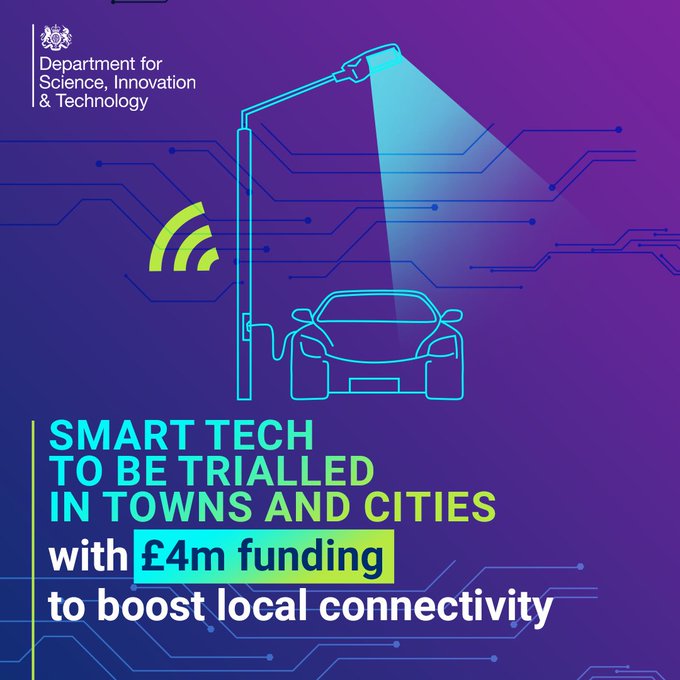Roadmap shows how you could be riding in self-driving vehicles by 2030

-
UK Connected and Automated Mobility Roadmap (CAM) to 2030 pinpoints 500+ milestones required to get self-driving vehicles on Britain’s roads in the thousands by 2030
-
Zenzic identifies six ‘Golden Threads’ for collaboration which accelerate progress by almost 50 years
-
Roadmap created with input from over 150 organisations, including Smart Cambridge – across government, industry and academia during six months of interactive workshops, interviews and research
Zenzic launched the world’s first self-driving roadmap on Tuesday 3 September 2019 – the UK Connected and Automated Mobility Roadmap to 2030 – to clearly show the connections, cross-sector interdependencies and collaboration required to get self-driving vehicles on Britain’s roads in significant numbers by 2030.
Zenzic was set up by government and industry to coordinate a national platform for testing and developing connected and self-driving vehicles in the UK, and channels £200 million in investment into the British self-driving ecosystem.
The roadmap is based on four key themes: Society and People, Vehicles, Infrastructure and Services. It also identifies six Golden Threads that show areas dependent on cross-industry collaboration and parallel developments to achieve the goal of self-driving services being accessible to the public by 2030.
Key insights from the roadmap include:
- Collaboration is the key: If all the activity in the roadmap was scheduled sequentially with no parallel efforts, it would take until 2079 for the UK to benefit from self-driving vehicles on the roads. The unique and deliberate cooperation between industry, academia and government in the UK is the key to achieving the benefits of CAM.
- Legislation and regulation changes are critical: Of the 500+ milestones in the roadmap, regulations, standards and legislation are the most critical enablers for the development, trialling and deployment of self-driving technologies and services. These include a consistent framework for the approval and licencing of self-driving vehicles, agreed safety standards, and the creation of a digital ‘Highway Code’.
- Safety is a priority and vital for public acceptance: The majority of road incidents currently involve human error. By leveraging automation to remove humans from the task of driving, organisations harness the ability to vastly reduce the number of serious collisions. Additionally, the number one factor in achieving public acceptability is a clear and transparent approach to safety.
- Societal outcomes must be at the centre of our planning: To date, a vehicle-centric focus has been adopted to progress self-driving technology. By thinking today about how technology and services will benefit society at large in 2030, the UK is better placed to unlock the full value of CAM. Through the sharing of data, self-driving vehicles will contribute to more efficient use of our roads, improve safety and offer more inclusive transport options to more people. This will benefit not only society but also the economy.
- Cyber security is a major UK competitive advantage: With the UK at the forefront of cyber security technology, and half of the roadmap dependent on it, the country has an opportunity to leverage our homegrown solutions to progress CAM capabilities and lead the way globally.
- 2025 will mark the tipping point: The roadmap predicts 2025 will be the exciting moment the UK switches gears from trial and development of the technology to the scaling up of its deployment. After this point, thanks to advances in vehicle licencing, vehicle insurance and a tidal change in desirability in the public eye, we expect to see more commercial passenger services emerging.
The key Golden Threads identified by Zenzic for the launch are:
- Legislation and Regulation – A key deliverable for this Thread is the establishment of a UK-wide approval process for high volumes of self-driving vehicles – a fundamental building block for the wider industry.
- Safety – The biggest contributors to safety come from the necessary legal and regulatory changes. Further to this, a core component of vehicle safety will be the sharing of safety critical data vehicle-to-vehicle.
- CAM Services – This Golden Thread leads to the development of Personal Mobility, Freight and Logistics services and Inclusive Transport, requiring a public education programme, business models and a UK-wide licencing framework.
- Public Acceptability – The development of self-driving vehicles will be meaningless if society does not want to use them. This Golden Thread covers the Milestones that build trust with the public, ensuring they are comfortable and want to use CAM services.
- Infrastructure – This is one of the most urgent Golden Threads. Within the next two years, cities and regions in the UK must start to create blueprints of how to adapt and integrate future CAM technologies and services.
- Cyber Resilience – This Golden Thread has the most Milestones associated with it (291). The
UK’s cyber expertise will be used to inform global best practice. For example, a goal must be to focus on resilience in the event of a cyber failure or threat rather than trying to build an unbreakable system.
Daniel Ruiz, CEO at Zenzic said: “I am very proud of the intense and highly collaborative effort by many individuals and organisations that has resulted in this first release of the UK Connected and Automated Mobility Roadmap to 2030.
“We are in a period of dramatic social and economic change. Transport is fundamental to the change as it delivers ‘mobility’; and mobility itself will soon be transformed by the new technologies associated with connectivity and automation, including ‘self-driving’. The exploitation of these technologies through innovative operating and business models can bring economic benefits in terms of local and national efficiencies, as well as exports of UK skills and products.
“We believe this tool is the competitive advantage we need to be a world leader in CAM. The roadmap will not only enable those involved to maximise the return on their investments in time and money, but also streamline the creation of targeted strategies to deliver significant social and economic benefits for the UK.”
Business Minister Nadhim Zahawi said: “The UK has a world-leading automotive sector and, through our work with industry, we are building on this exceptional reputation, earning our position at the forefront of the design and development of future vehicle technologies.
“The Roadmap published today shows how we can work together to meet the generational challenge posed by climate change and define the future of mobility. Autonomous vehicle technologies will revolutionise how we travel – reducing congestion and emissions, increasing accessibility and reducing accidents on our roads”.
Future of Transport Minister George Freeman said: “UK leadership in connected and self-driving vehicles has the potential to transform our transport network and attract billions of investment to the UK.
“The UK is a global leader in the development and safe testing of this technology, thanks to collaboration between government, industry and academia.
“Zenzic’s roadmap is a fantastic example of the public and private sector working together to shape the future of connected and self-driving technologies – and demonstrate the UK as a world leading test-bed in 21stC Mobility.”
Andrew Hugill, Policy and Technical Affairs at the Chartered Institution of Highways and Transportation’s Director said: “CIHT has been clear the continued development of connected and autonomous vehicles has the potential to significantly improve road safety, reduce congestion and enhance the experience of car users and drivers.
“The roadmap pulls together all the activities around CAM in a way that hasn’t been seen before and will enable wider understanding and importantly, proper consideration of the challenges and hurdles to be overcome for the successful implementation and effective use by the wider population.”
For more detail on the Golden Threads, gain further insight on how your project or organisation relates to the milestones within the roadmap, you can access the interactive roadmap at zenzic.io/roadmap or contact the Zenzic technology team at in**@ze****.io.
About Zenzic
Zenzic (formerly Meridian) was created by government and industry to champion the UK connected and self-driving ecosystem and lead the UK in accelerating the self-driving revolution. The company drives collaboration with partners across industry, government and academia to shape a world-class Testbed UK, and to deliver a comprehensive UK Connected and Automated Mobility Roadmap to 2030. Zenzic is channelling £200 million of investment, with the ultimate goal of ensuring a safer, more inclusive and productive mobile future. Learn more at zenzic.io. This press release is also available on the Zenzic website.
Related Posts

Connecting Cambridgeshire secures £220K funding from Smart Infrastructure Pilots Programme competition

Public and private sector unite to research self-driving vehicles in Cambridge

